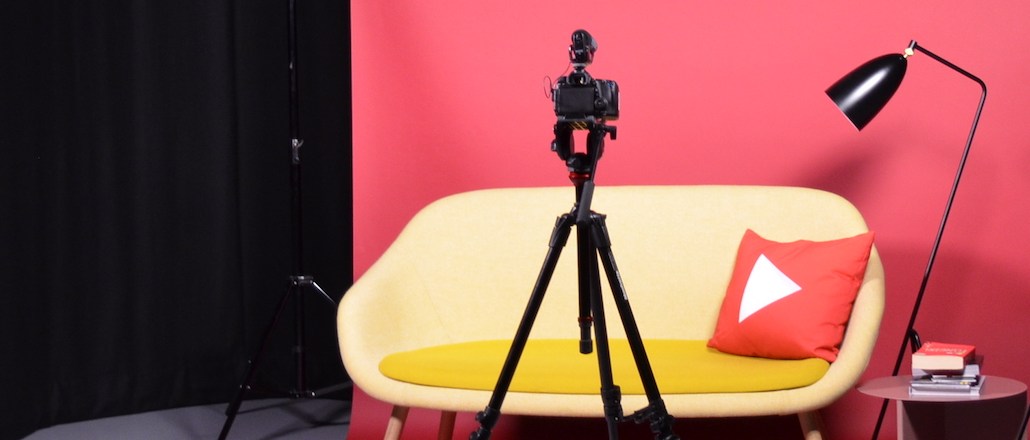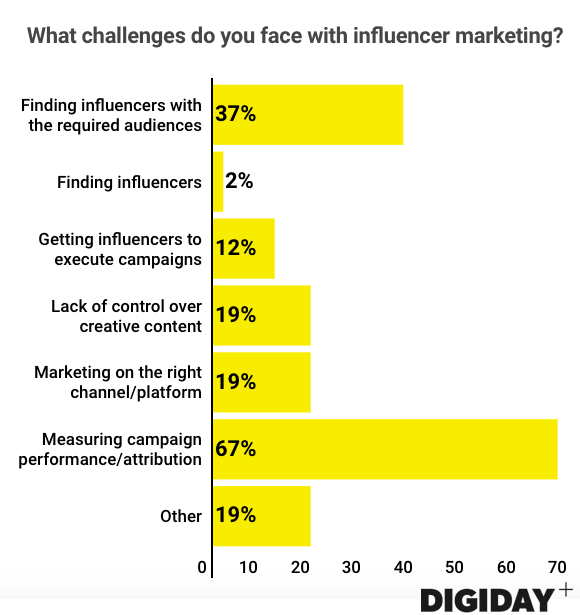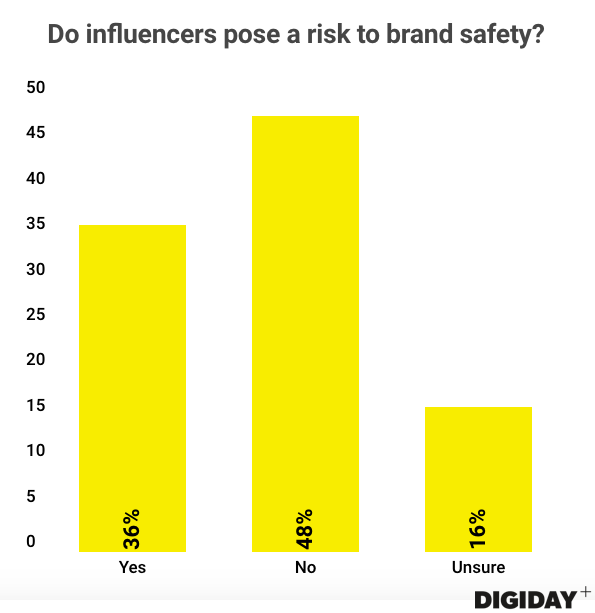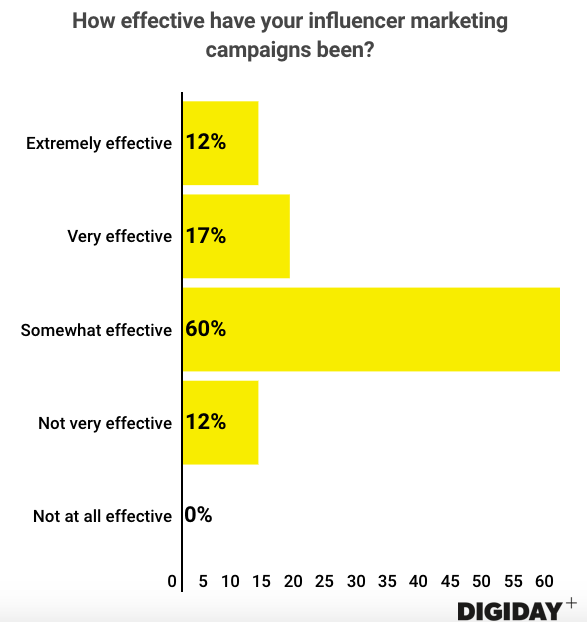Save 50% on a 3-month Digiday+ membership. Ends Dec 5.
Digiday Research: Two-thirds of retailers struggle to measure influencer campaigns

This research is based on unique data collected from our proprietary audience of publisher, agency, brand and tech insiders. It’s available to Digiday+ members. More from the series →
At the Digiday Retail Summit event last month in Austin, Texas, we sat down with 53 retail executives to learn their views on influencer marketing and Amazon’s impact on their businesses. Check out our earlier research on how European publishers expect Facebook’s algorithm changes to affect their audience size here. Learn more about our upcoming events here.
Quick takeaways:
- Two-thirds of respondents to a Digiday survey at the event said measuring campaign performance is a challenge with influencer marketing.
- Over one-third believe influencers pose a risk to brand safety.
- Only 29 percent said influencer marketing is extremely or very effective.
Reporting for influencer campaigns is unreliable
Influencer marketing has quickly gone from experimental to an essential component of brands’ marketing campaigns. Already valued at over $1 billion, spending on influencer marketing is projected to surpass $2 billion by 2019.
Yet influencer marketing remains an imperfect science at best. Sixty-seven percent of retail executives that Digiday surveyed reported challenges with reliably measuring campaign performance and attribution. While data from influencer marketing is improving, it still fails to meet marketers’ expectations.

Brands don’t question influencer marketing’s efficacy, with 31 percent of consumers in a Olapic survey reporting they purchased a product after seeing an influencer’s post. But proving consumers purchased a product as a result of an influencer campaign isn’t easy. And it doesn’t help that only 29 percent of influencers use trackable attribution links, according to a Celebrity Intelligence study. If influencers don’t work with brands and agencies to facilitate proper campaign measurement, headaches surrounding campaign performance won’t be resolved anytime soon.
Brand safety is a worry
In a year dominated by brand-safety conversations, major scandals involving influencers Logan Paul and PewDiePie raised concerns that influencers could damage brands. Thirty-six percent of retail brands in Digiday’s survey believe influencers pose a risk to brand safety.

Ad position: web_incontent_pos1
In response to brand-safety concerns, YouTube restricted which influencers can be monetized via its ad platform. Retailers can’t control everything an influencer does, but they are also taking steps to insulate themselves from brand-safety risks. Rather than toss money at a swarm of influencers in the hopes of meeting campaign objectives, many brands now employ influencer whitelists, which are preapproved rosters of influencers a brand feels comfortable working with.
Influencer marketing has potential to become more effective
Despite brand-safety risks and issues with campaign measurement, 87 percent of retailers in Digiday’s survey have used influencer marketing. However, the majority believe influencer marketing is only somewhat effective.

A New York Times story that exposed fraud in influencer marketing left marketers questioning the legitimacy of their campaigns. Influencers, who often get the creative license to create content for brands, can also be challenging to work with, in some cases failing to adhere to brands’ strict campaign deadlines. Brands are addressing this by tightening their requirements in their contracts with influencers. While influencer marketing is a powerful weapon for retailers, fraud and measurement issues are holding it back.
More in Marketing

Ulta, Best Buy and Adidas dominate AI holiday shopping mentions
The brands that are seeing the biggest boost from this shift in consumer behavior are some of the biggest retailers.

U.K. retailer Boots leads brand efforts to invest in ad creative’s data layer
For media dollars to make an impact, brands need ad creative that actually hits. More CMOs are investing in pre- and post-flight measurement.
Ad position: web_bfu